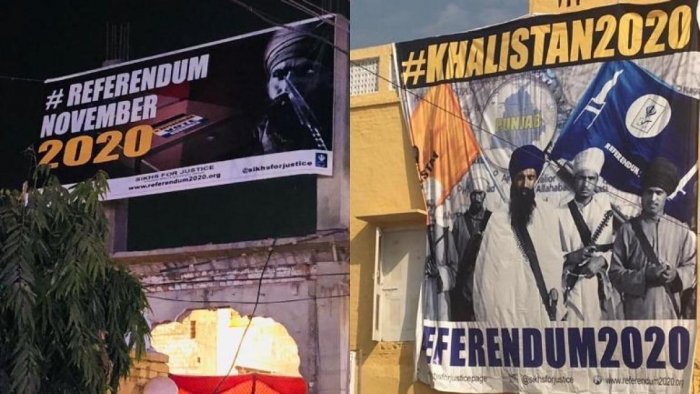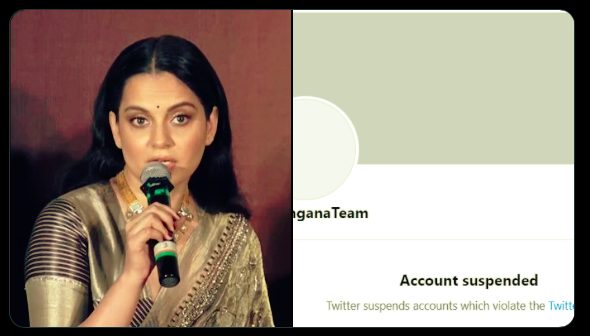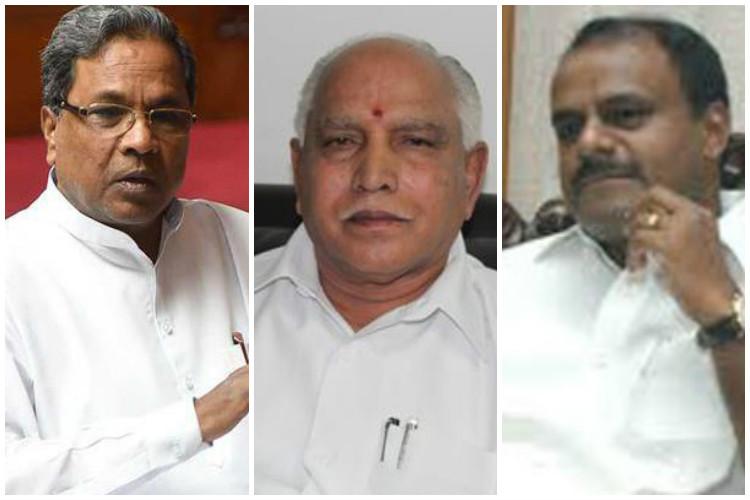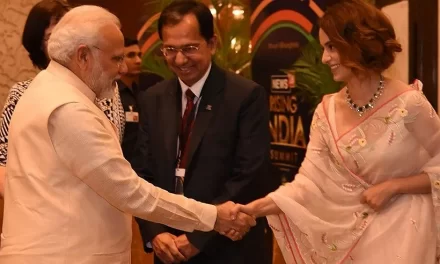Pakistan has invoked the legacy of Guru Nanak to duck the flak from India on the 10th anniversary of the November 26-28, 2008, terror attack in Mumbai as well as to foment a new phase of Khalistani separatism in Punjab.
The dominant narrative in the India-Pakistan context this week was expected to revolve around the role of Pakistan’s state and non-state actors in staging that dastardly terror attack in India’s financial capital 10 years ago.
The 26/11 anniversary was expected to remind the world how the “deep state” in Rawalpindi and Islamabad helped Lashkar-e-Toiba plan and carry out the mayhem in Mumbai – killing 160 people and injuring many more.
It was to once again bring back focus on how the trial of the seven 26/11 plotters in an anti-terrorism court in Pakistan was turned into a farce and the mastermind of the attack, Hafiz Saeed, allowed to roam freely, even as he continues to spit venom against India.
It is also an occasion that reminds us that 26/11 was not the last cross-border terror attack that was launched from Pakistan — it was followed by several other strikes: Pathankot in January 2016, Uri in September that year.
Instead, Prime Minister Imran Khan’s government in Islamabad wanted a counter narrative and made up what its Foreign Minister Shah Mehmood Qureshi called the “Kartarpur Spirit”.
Imran khan chose November 28 to formally launch construction of a corridor from Gurdwara Darbar Sahib Kartarpur in Narowal, Pakistan, to the country’s border with India.
The corridor – along with the one New Delhi would build from Dera Baba Nanak at Gurdaspur in Punjab to the border between India and Pakistan – would help facilitate Indian Sikh pilgrims to visit the shrine at the final resting place of Guru Nanak, without requiring passports or visas.
Qureshi even invited his counterpart Sushma Swaraj to attend the ceremony. Swaraj wrote back that she would not be able to attend the ceremony due to “prior commitments”, but her colleagues union ministers Harsimrat Kaur Badal and Hardeep Singh Puri are set to represent the Government of India and join Khan at the formal commencement of work on the corridor.
Pakistan is playing up its move to open the ‘Kartarpur Corridor’ as a “step forward in the right direction, from conflict to cooperation, animosity to peace and enmity to friendship” with India.
The Gurdwara Darbar Sahib Kartarpur is among the holiest for the Sikhs, as it marks the place where Guru Nanak lived for 18 years and finally breathed his last in 1539.
India had been proposing opening of the Kartarpur Corridor for more than 20 years, but it had failed to move Pakistan. With the 550th birth anniversary of the founder of Sikhism to be celebrated in 2019, New Delhi, on November 22 last, announced its decision to start building its stretch in India and once again urged Islamabad to build the stretch in Pakistan.
Qureshi soon posted on twitter that Islamabad had already conveyed to New Delhi its decision to open the Kartarpur Corridor. It must be noted that Islamabad has agreed to open the corridor only for the 550th birth anniversary of Guru Nanak and has not committed to keeping it open beyond the ceremonies next year. New Delhi has been insisting on keeping the corridor open permanently.
Pakistan has been, of late, unusually liberal in granting visas to Indian Sikhs seeking to visit shrines in the neighbouring country. The High Commission of Pakistan in New Delhi granted visas to 3,800 pilgrims from India to visit the Gurdwara Janam Asthan at Nankana Sahib and Gurdwara Sachcha Sauda at Farooqabad near Lahore on the occasion of the 549th birth anniversary of Guru Nanak last week.
But, when Sikh pilgrims reached the gurdwaras in Pakistan, they were greeted with slogans and huge posters calling for secession of Khalistan from India.
The posters, with pictures of separatist leaders of the pro-Khalistan organisation ‘Sikhs for Justice’, were on display in and around the shrines. Pro-Khalistan processions were also taken out near the Gurudwara Janam Asthan at Nankana Sahib during the stay of the Sikh pilgrims from India.
The consular officials of the High Commission of India in Islamabad were not allowed to enter the shrines and meet the Sikh pilgrims, prompting New Delhi to issue a demarche lodging a strong protest with the Government of Pakistan.
India’s High Commissioner to Pakistan, Ajay Bisaria, was himself denied permission to meet the Sikh pilgrims at Panja Sahib Gurdwara at Hasan Abdal in the neighbouring country twice earlier – in April and June this year.
That the ‘deep state’ in Pakistan is once again trying to revive the secessionist Khalistan movement in India is well known.
Delhi is also aware of the links of the Pakistani ISI with radical Sikhs in Canada, US, Australia, UK and the rest of Europe.
The ISI supported ‘Sikhs for Justice’ to hold a rally in London on August 12, seeking to mobilise support for a referendum in 2020 seeking secession of Khalistan from India.
‘Sikhs for Justice’ plans to hold a bigger event in Pakistan next year. Investigations have also revealed ISI’s role in the recent blast at Nirankari Sant Bhavan in Amritsar in which three people died.
New Delhi should have no doubt what Pakistan’s real intent behind the outreach to Sikhs is. Yet the BJP government has decided to send two union ministers to take part in the launch of works for the Kartarpur Corridor.
The BJP may have had to be mindful of the political interests of its ally Shiromani Akali Dal, particularly after Congress minister Navjot Singh Sidhu showed up at Imran Khan’s swearing-in ceremony in Islamabad on August 18 and claimed to have elicited from Pakistan army chief Gen. Qamar Bajwa an assurance on opening up the Kartarpur Corridor.
Had Delhi turned down Pakistan’s invitation, it would have helped Pakistan to radicalise a few more Sikhs and turn them against India.
Delhi perhaps had no option but to play along with Islamabad.But what it can at least do is to refrain from going overboard in lauding Pakistan and comparing its move to open the Kartarpur Corridor with “the collapse of Berlin Wall” – as Prime Minister Narendra Modi himself did recently.









